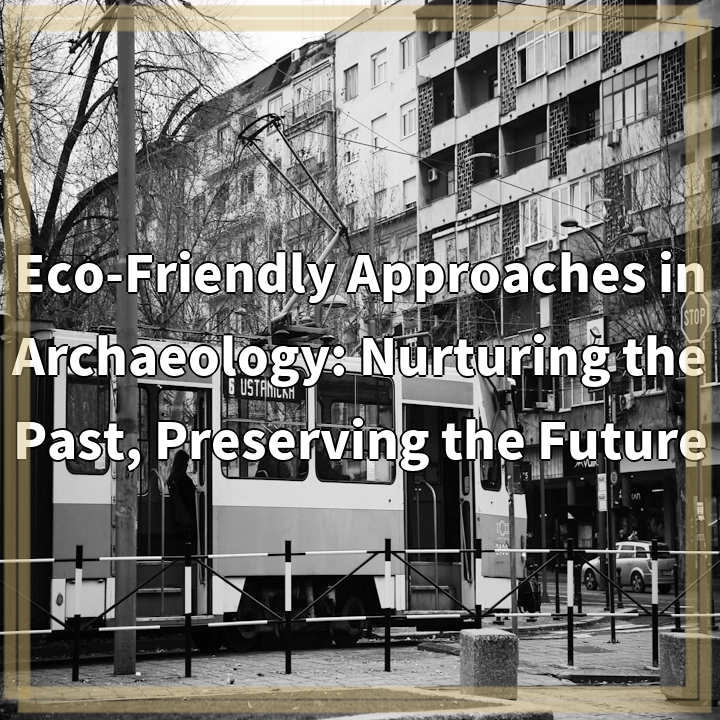
What it is:
Eco-friendly approaches in archaeology involve the implementation of environmentally sustainable practices throughout the process of digging, analyzing, and preserving archaeological sites. These approaches prioritize minimizing negative impacts on the natural and cultural surroundings, while also striving to enhance the positive contributions archaeology can make to the environment.
Real-World Problems:
1. Environmental Degradation:
Traditional archaeological excavation techniques can lead to environmental degradation and habitat destruction. The use of heavy machinery, excavation backfill, and improper waste management may cause soil erosion, loss of vegetation, and disturbance of sensitive ecosystems.
2. Carbon Footprint:
Archaeological projects often involve extensive travel, both domestically and internationally, leading to a significant carbon footprint. This includes transportation of personnel, equipment, and materials to and from excavation sites, conferences, and laboratory facilities. The carbon emissions from such activities contribute to climate change and environmental pollution.
3. Cultural Heritage Conservation:
Eco-friendly approaches in archaeology also address the challenges associated with preserving cultural heritage sites. Climate change and natural disasters, such as flooding and soil erosion, pose significant threats to archaeological sites and artifacts. Additionally, man-made activities, including urban development and tourism, can cause irreversible damage to cultural heritage.
4. Sustainable Resource Management:
Archaeological research often requires the use of resources such as water, energy, and materials for excavation, analysis, and preservation. Without proper management, these resources can be depleted or wasted, contributing to environmental degradation and an unsustainable practice of archaeology.
5. Community Engagement:
Eco-friendly approaches in archaeology emphasize the importance of engaging local communities and indigenous groups in the decision-making process. Failure to involve these stakeholders can lead to conflicts, lack of support, and the disregard of traditional knowledge and sustainable practices.
By addressing these real-world problems and adopting eco-friendly approaches in archaeology, we can ensure the preservation of the past while protecting and nurturing our environment for future generations.

Solutions for Eco-Friendly Approaches in Archaeology
1. Sustainable Excavation Techniques:
Implementing sustainable excavation techniques can reduce the negative impact on the environment. This includes using manual excavation methods when possible, minimizing the use of heavy machinery, and ensuring proper backfilling and re-vegetation of excavation areas.
2. Carbon Offsetting and Reduction:
Archaeological projects can aim to offset and reduce their carbon footprint by implementing measures such as reducing travel-related emissions through remote sensing and remote analysis methods. Offsetting can be done by supporting carbon offset projects or investing in renewable energy sources.
3. Climate Change Adaptation for Cultural Heritage:
To address the threats posed by climate change to archaeological sites, adaptation strategies should be developed. This includes investing in protective measures like appropriate drainage systems, site stabilization techniques, and climate-responsive conservation strategies.
4. Sustainable Resource Management:
Archaeologists can implement sustainable resource management practices by minimizing water and energy consumption, practicing recycling and waste reduction, and consciously choosing materials with low environmental impact for analysis and preservation purposes.
5. Community Collaboration and Capacity Building:
Engaging local communities and indigenous groups in archaeology projects is crucial. This involves fostering partnerships, providing training opportunities, and acknowledging and integrating traditional knowledge and sustainable practices into archaeological methodologies.
By implementing these solutions, we can ensure that archaeology not only becomes environmentally responsible but actively contributes to the preservation of our cultural and natural heritage for future generations.















